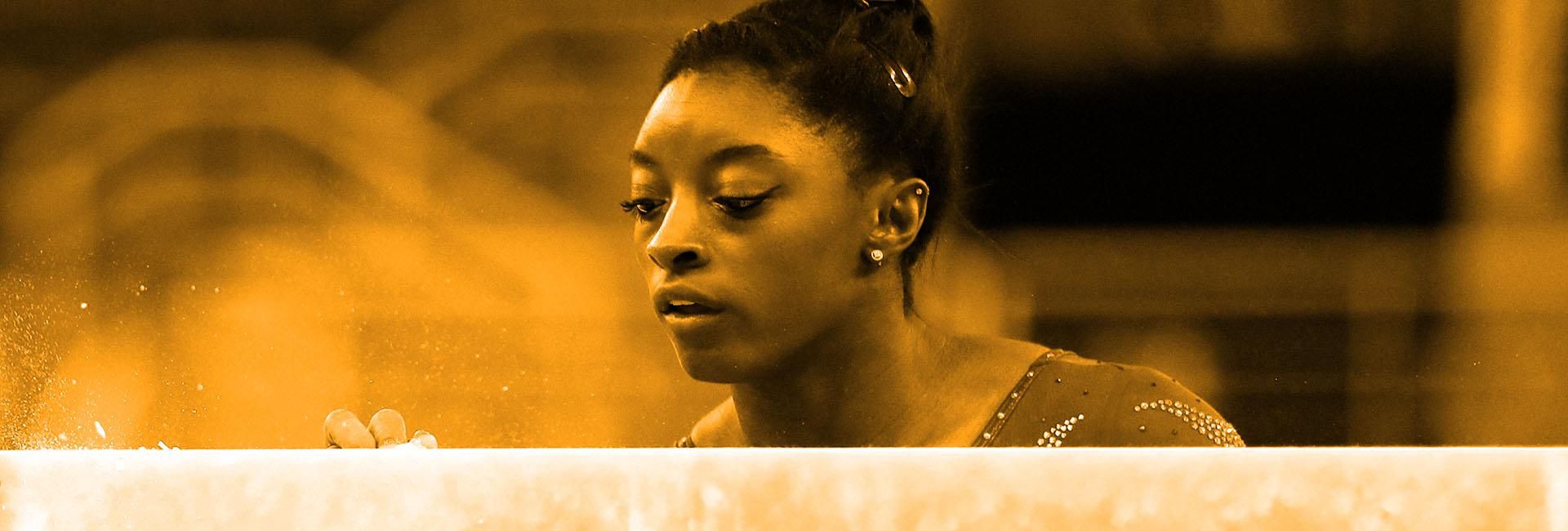Former Australian Olympian warns all-consuming nature of Olympic training means emotional development can be neglected.
The mental health of elite athletes has come into sharp focus in Tokyo with the withdrawal of perhaps the games' most high profile athlete, US gymnast Simone Biles, for "mental health reasons".
Biles' withdrawal from teams competition on Tuesday evening comes in the wake of other high profile athletes such as US swimming superstar Michael Phelps, the most decorated Olympian ever, speaking candidly about his often-concealed mental health problems and advocating for greater awareness of mental health. In May, Japanese tennis champion, Naomi Osaka, who lit the Olympic torch, withdrew from Roland Garros grand slam championship to protect her mental health.
Robert Hurley, an Australian Olympian and 2012 World Champion in the shortcourse 50 m backstroke, is an outspoken advocate for elite athletes and men's mental health.
'Years and years of work and sweat is condensed into a race spanning less than a minute, [it] can be very mentally taxing.'
Hurley said prior to COVID, the pressure on athletes' mental health was already multifold: "it can range from financial insecurities, physical injury, eating disorders, discrimination, pressure from media press, substance abuse, lack of sleep and separation from family". And now, athletes can add to that list a disease that could be potentially career-ending.
In July last year, the International Olympic Committee released a consensus statement revealing elite athletes, including Olympians, had rates of anxiety and depression as high as 45 per cent of those surveyed.
Biles has since explained to the media it sometimes felt like she had "the weight of the world on her shoulders".
"I just felt like it would be a little bit better to take a back seat, work on my mindfulness and I knew that the girls would do an absolutely great job and I didn't want to risk the team a medal for my screw ups because they worked too hard for that."
Without Biles, the US went on to take silver, with Russia's gymnasts winning the gold – the first time the US had lost a gymnastics team final in an Olympics or a world championship since 2010.
Responding to Biles' decision to step back, Phelps, told NBC Philedelphia that although the news broke his heart, mental health has been an emerging topic over the last 18 months. "We're human beings. Nobody is perfect. It is okay to not be okay. It is okay to go through ups and downs and emotion roller coasters. But I think the biggest thing is we all need to ask for help sometimes, too, when we go through those times,.
Hurley, who now coaches swimming at all-girls school Loreto Normanhurst, in Sydney's north, has a podcast Swimming with Bobby where he discusses swimming techniques and mental health. Speaking with Newsworthy ahead of the Olympics, he said the anxiety of competing at the Olympics comes down to the fact that "years and years of work and sweat is condensed into a race spanning less than a minute, [it] can be very mentally taxing".
"I often found myself in bouts of severe anxiety to the point where it would affect my performance and by not reaching out and acknowledging it, I could pretend it didn't exist."
Hurley said the all-consuming nature of Olympic training meant "the sport becomes an extension of them to the point where other activities especially in their formative years [are] neglected ... leaving a gap in their emotional development".
He encourages young athletes to speak about their mental health struggles, but warns there is a "long way to go" in breaking down the stigma surrounding the issue. While the Olympic Charter stipulates mental wellbeing is a key attribute of the philosophy of Olympianism – "combining a balanced whole the qualities of body, will and mind" – there remains a perceived stigma attached to athletes seeking psychological help, and a sense that it is a sign of weakness rather than the hallmark of a "winner".
Additional reporting by Odelia Tham.






Afraid of an egg: the tyranny of living with social media's body standards